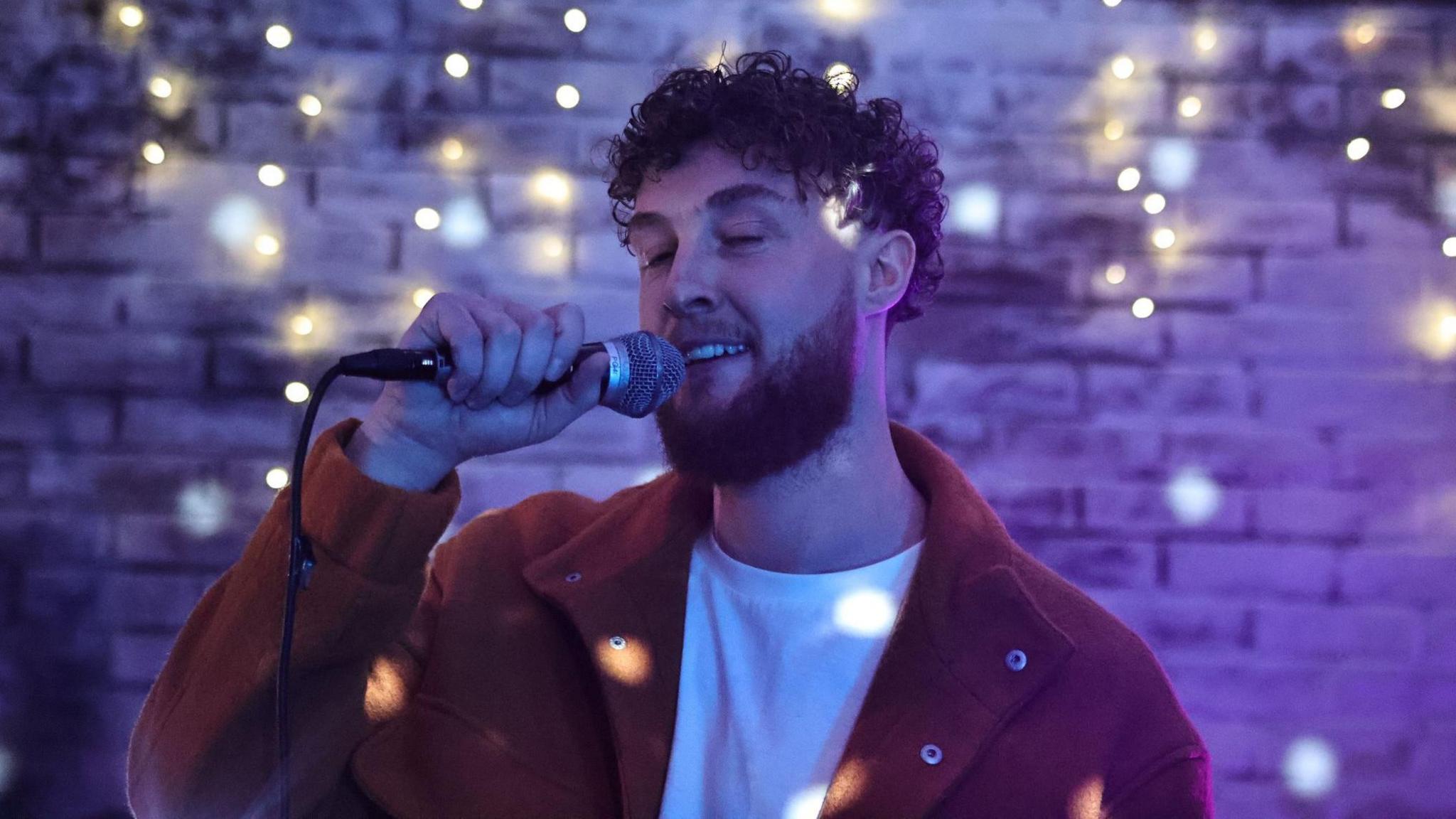Stroke survivor says bodysurfing aided recovery
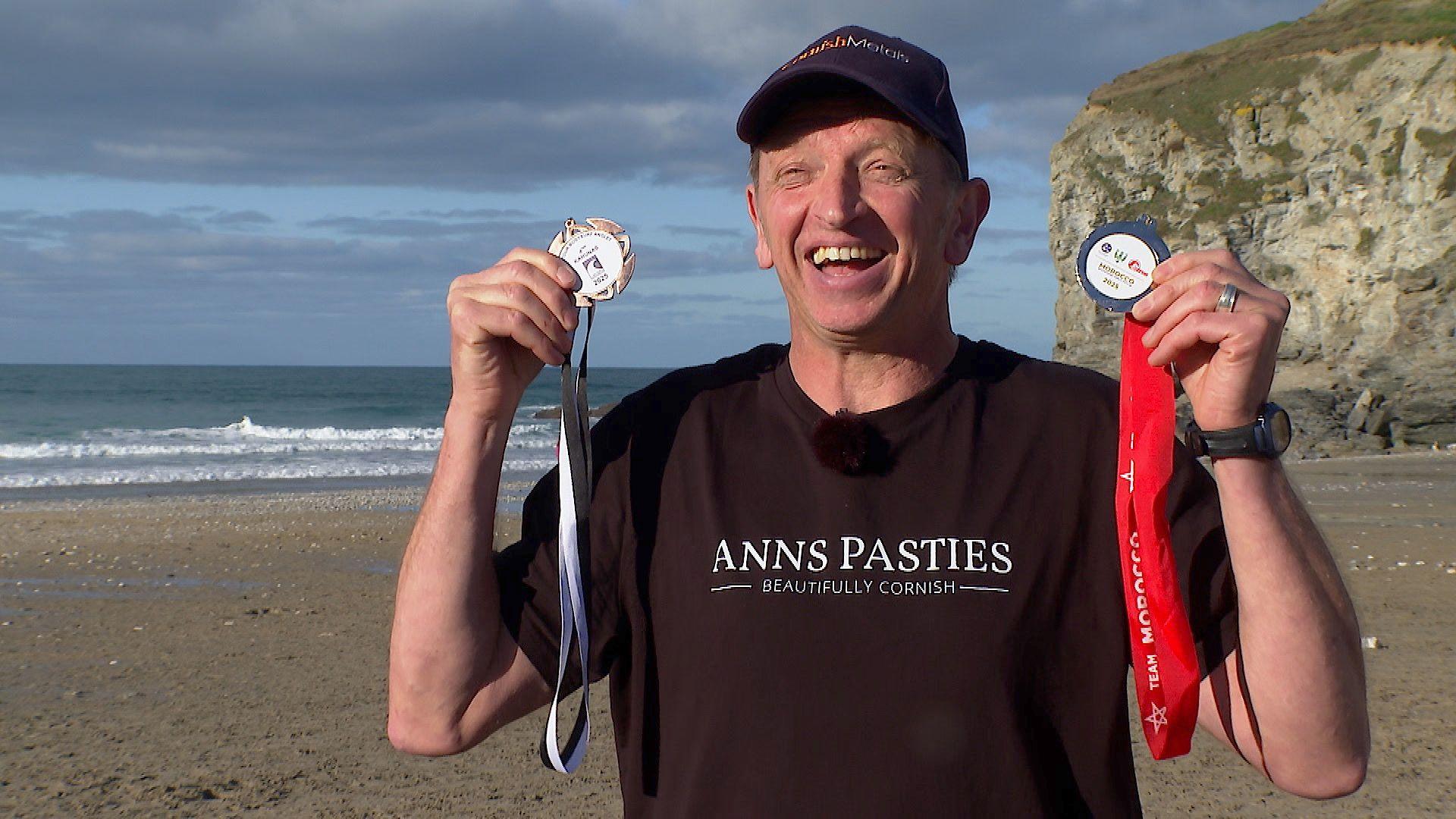
Danny Teare has won medals in competitions in France and Morocco
- Published
A stroke survivor who has used bodysurfing as part of his recovery is now ranked 20th in the sport in Europe and Africa.
Danny Teare, 50, represented the UK in the Euro Open Bodysurf Tour, only six years after suffering a stroke while surfing.
Mr Teare, from Camborne, says surfing was "a massive part" of his life before he had the stroke but being in the sea had also helped him recover.
He has now set up an online community to help other stroke survivors and raise awareness of the condition.
Mr Teare, a former beach lifeguard and surf instructor, had his first stroke when he was 44. He said he moved to Cornwall to follow his passion of surfing and "chased waves all the way around the world".
But following his stroke, surfing became very difficult and he was forced to adapt to bodysurfing.
"I found bodysurfing, which is pretty much lying down on a wave and your body becomes your surf board," he said.
How to spot the signs of a stroke? Video, 00:00:57
- Published29 October 2014
Mr Teare has been bodysurfing for five years and is a member of the UK Bodysurfing Association.
He has competed in the UK and took part in the Euro Open Bodysurf Tour in France and Morocco.
He won medals for coming fourth in his age group in both competitions and says he is now the highest ranked bodysurfer in the UK.
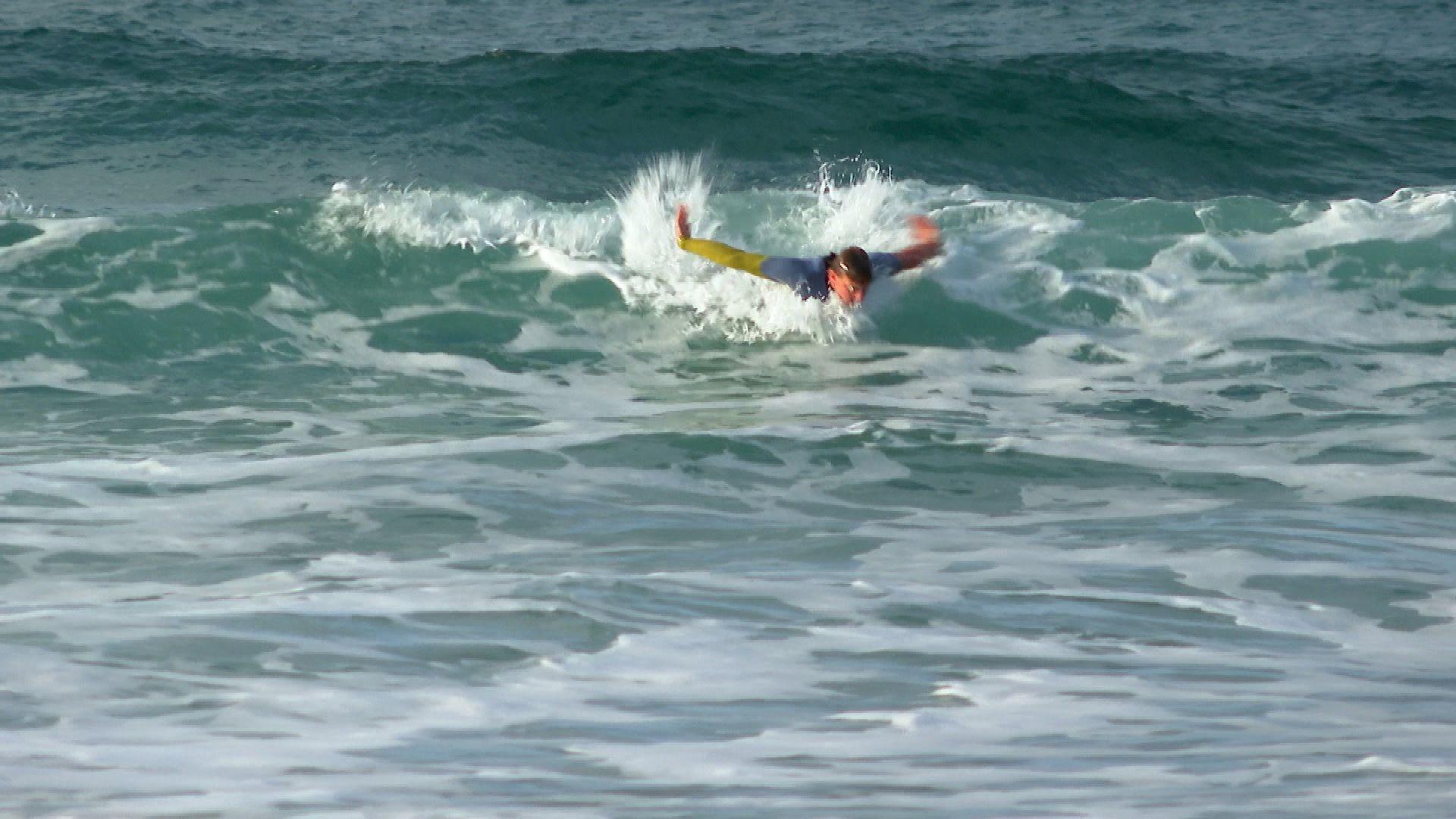
Danny Teare said he was shocked to come from "such a negative space to such a positive space in such a short time"
Mr Teare described his success in bodysurfing as "amazing".
"I am elated. I am shocked that I've been able to come from such a negative space to such a positive space in such a short time," he said.
He said the lows of his stroke were "really low" and he made a conscious decision to become more positive.
After realising how much the ocean helped him, he set up Stoked Stroke Survivors, a "community of people with acquired brain injuries, stroke survivors and their families", he said.
He said he hoped it would help raise awareness because "it doesn't feel like there is a lot of help out there and it can be a struggle."
Follow BBC Cornwall on X, external, Facebook, external and Instagram, external. Send your story ideas to spotlight@bbc.co.uk, external.
Related topics
- Published9 November
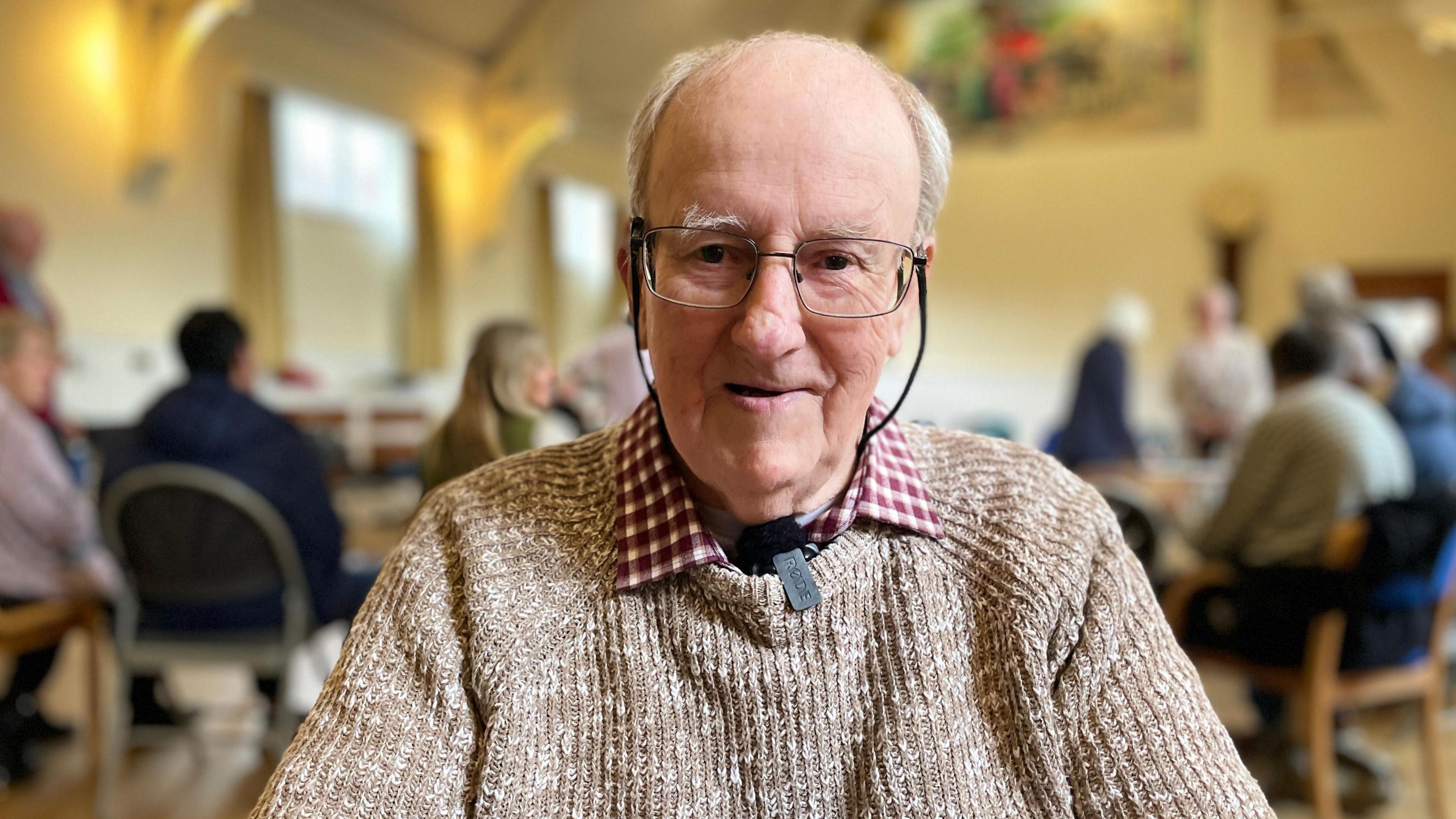
- Published2 November
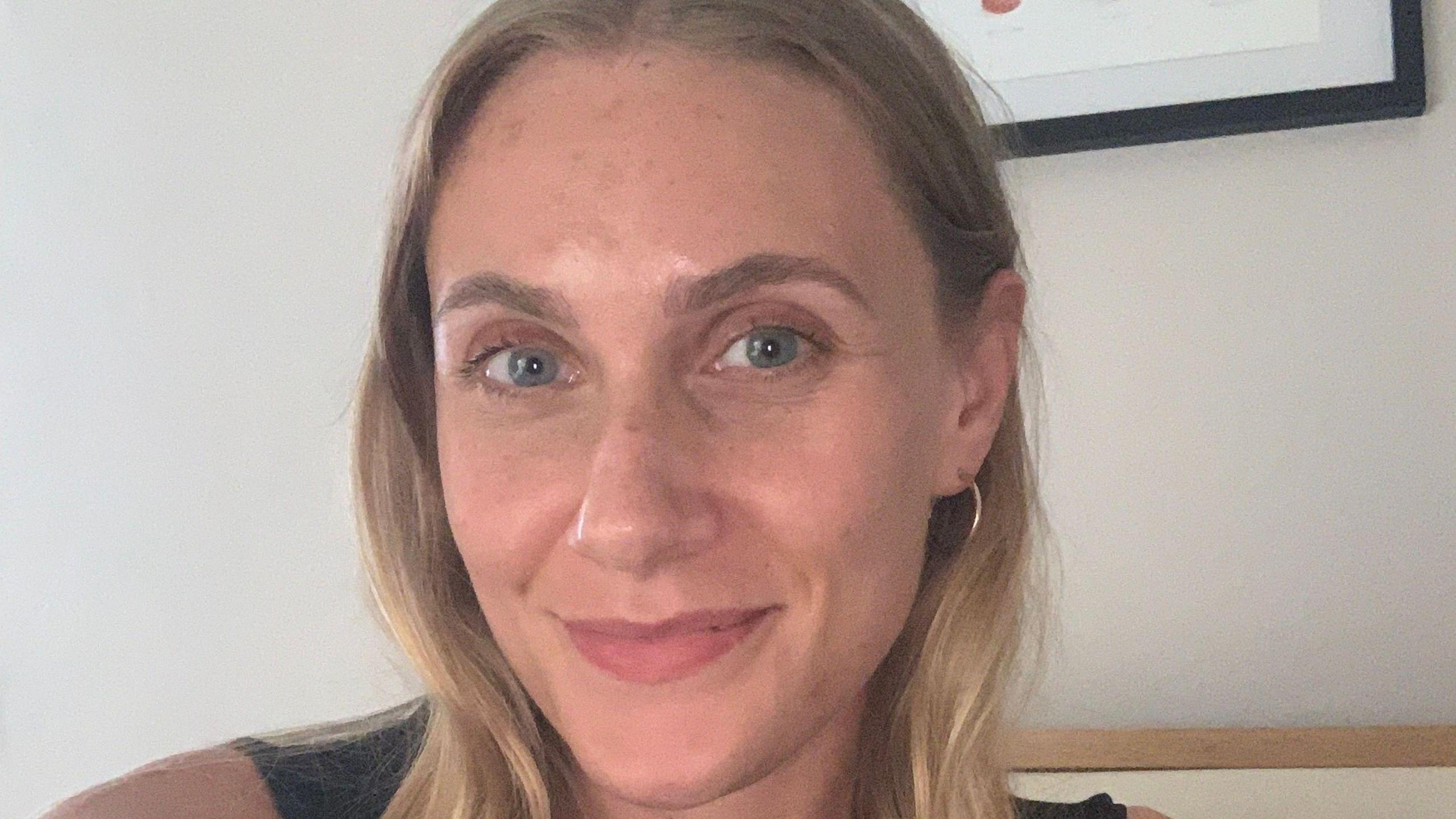
- Published15 May
